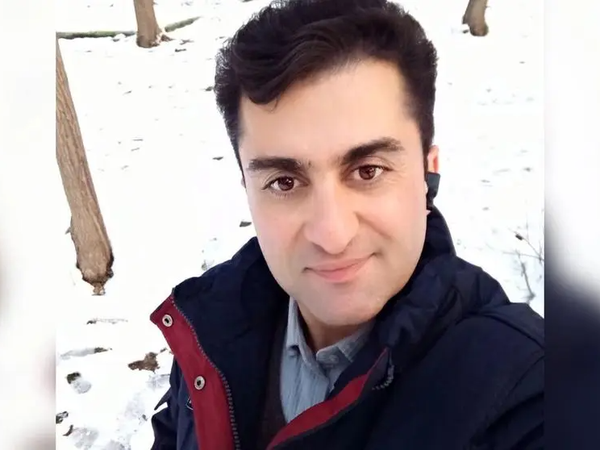An Iranian-Kurdish political prisoner faces execution in Iran for providing medical supplies to protesters injured during the Women, Life, Freedom uprising in 2022.
Rezgar Beigzadeh Babamiri, who was arrested in April last year, now stands accused of a litany of charges, including moharebeh (enmity against God), espionage, and rebellion, in a case marked by torture and judicial misconduct.
If convicted, Beigzadeh could face the death penalty. According to his daughter, Zhino, her father has denied all charges except anonymously delivering medical supplies and purchasing a Starlink device for personal use.
“My only crime was the humanitarian act of providing medicine for the injured,’” here father said, she told Iran International.
Beigzadeh, 47, a farmer and father of three, was apprehended by intelligence officers in Bukan and transferred to Urmia, where his family says he endured months of torture during interrogations.
His daughter described how he suffered beatings that left him with bruises, open wounds, and a ruptured eardrum. Despite filing complaints and requesting medical examinations to document the abuse, no action has been taken.
Zhino contends that the accusations against her father are baseless and serve as a tool of political repression. “He was so certain of his innocence that he didn’t go into hiding, even when others involved in providing medical supplies were being arrested,” she said.
Iran has faced widespread condemnation from the likes of Amnesty International for its execution of political prisoners, forced confessions under torture, and sham trials, particularly in the aftermath of the 2022 Women, Life, Freedom uprising.
Following mass protests sparked by the death of Mahsa Amini in police custody, Iranian authorities have executed several protesters in what human rights organizations describe as grossly unfair legal proceedings.
Rights groups and the UN's office of the commissioner on human rights (UNOCHR) have found that detainees are often subjected to brutal torture to extract false confessions, denied access to independent lawyers, and prosecuted in trials lacking due process, with sentences handed down swiftly to warn against dissent.
These executions have been branded by the UNOCHR as a tool of state repression to silence opposition and instil fear among a population demanding justice and fundamental freedoms.
Legal experts speaking to rights group Hengaw, which focuses on Kurdish minority rights in Iran, have highlighted numerous irregularities in Beigzadeh's case.
"The sources emphasized that the charges against Beigzadeh Babamiri are fabricated, and the investigation process has been fraught with significant procedural flaws," the rights group said this week.
He and 13 other defendants were initially forced to rely on a single court-appointed attorney, a move criticized for undermining their defense. Court sessions were later held via video conference, with defendants and their lawyers isolated from each other, preventing effective legal representation.
In addition to political charges, Beigzadeh faces allegations in a separate criminal case involving the murder of a local resident, Mohammad Ali Mohammadi, in March 2023. Despite no evidence linking him to the crime, he is accused of orchestrating the killing.
Legal experts speaking with Iran International on condition of anonymity have criticized the lack of precedent for such a charge under Iranian criminal law, describing it as part of a broader effort to discredit him.
Beigzadeh’s case is just one of thousands caught up in the crackdown on those associated with the Mahsa uprising, particularly in Kurdish regions. Tens of thousands of dissidents have been arrested since 2022 and hundreds more executed each year in a bid to quash dissent.
“In this system, even humanity is a crime,” his daughter Zhino said, emphasizing her father’s innocence and calling on the international community to intervene before it is too late.
